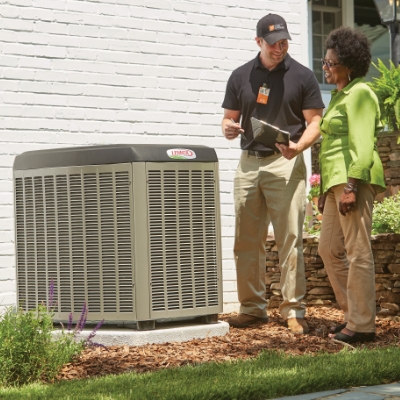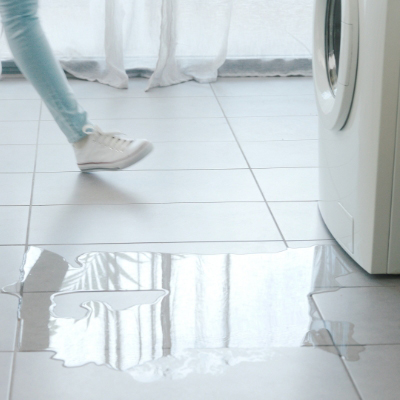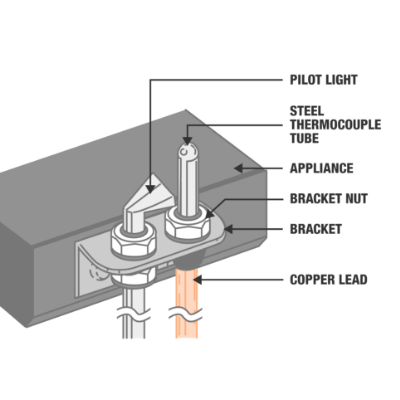How to Find & Fix AC Freon Leaks
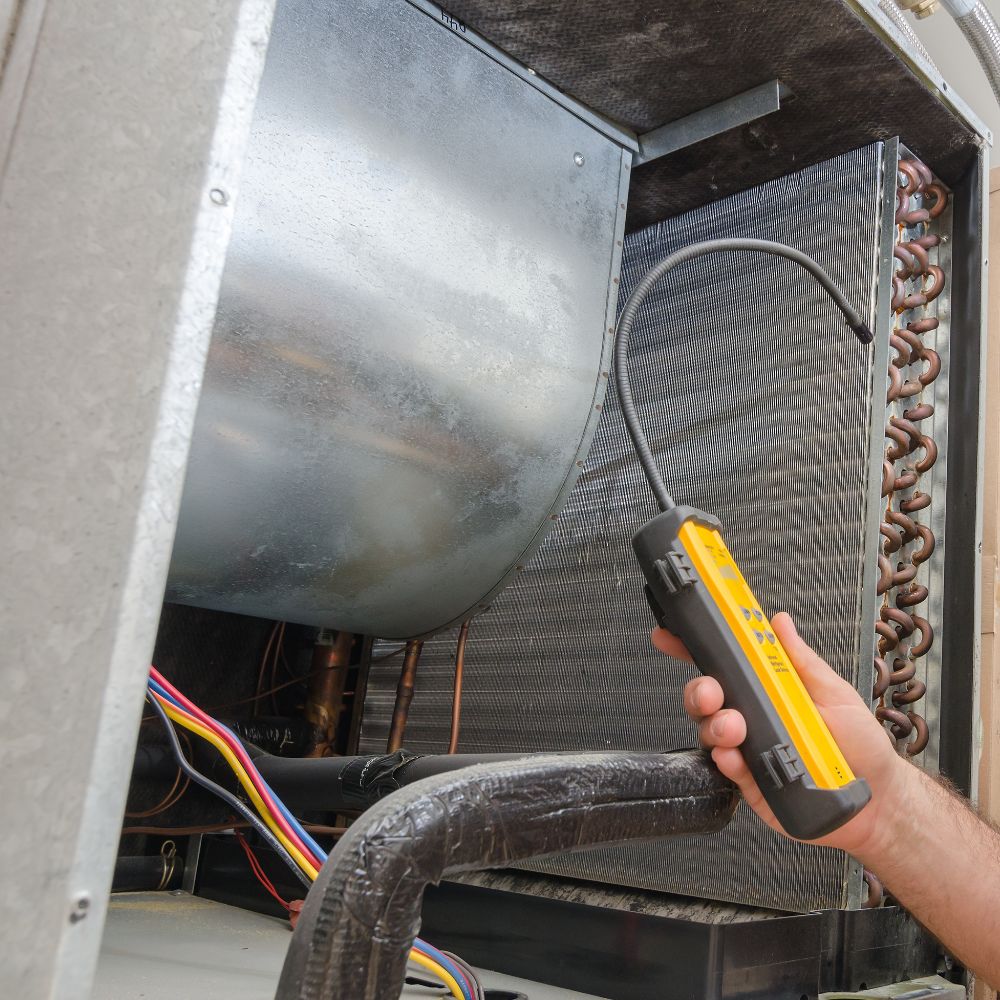
Last updated August 12, 2024
Refrigerant leaks are a common cause of air conditioner failure. Leaking Freon and other refrigerants can prevent an air conditioner from cooling properly. Learn how to locate a refrigerant leak and repair or replace the faulty equipment.
This guide reviews how to find and fix Freon leaks as well as when Freon is legal to use.
Difficulty:
Intermediate
Duration:
2-4 hours
Table of Contents
How to Find a Freon Leak
How to Fix AC Freon Leak
Is Freon Legal to Use?
More Tools. More Products. More Perks.
How to Find a Freon Leak
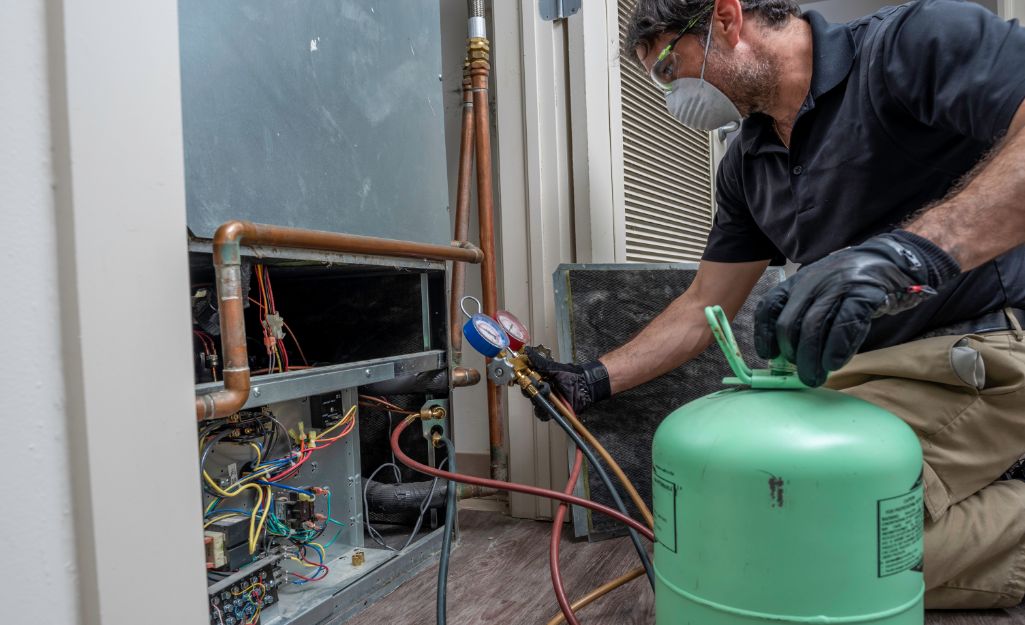
The following are signs of faulty air conditioner performance that can indicate potential Freon leaks:
- Poor cooling performance
- Longer cooling cycles
- Humid indoor air
- Ice on evaporator coils
- Higher utility bills
Clients with any of these issues should have their ACs inspected for refrigerant leaks.
One of the most overt signs of a Freon leak is a sweetish smell comparable to nail polish remover. This may indicate the general location of the leak and where to begin testing.
Oil spots on tubes, joints or near HVAC components may come from the oil in refrigeration coolant which would indicate a leak.
A bubble test is the fastest and easiest method for finding Freon leaks but is more effective on larger leaks than smaller ones. The larger the hole, the more easily the solution will reveal a leak.
- Prepare a solution of soapy water, using about one liter of water and 0.5 teaspoon of dish soap.
- Spray the joints of the refrigerant lines with the solution.
- Look for large bubbles at the joints. Bubbles will indicate a Freon leak.
- Spray the along length of the line if you suspect that exterior damage, such as from a lawn mower, is the source of the leak.
To find more challenging leaks, use a refrigerant leak detector. These tools have electronic sensors that detect the presence of Freon or other refrigerants.
- Turn on the detector.
- Hold the nozzle or probe of the detector to the top of the refrigerant line.
- Run the detector slowly down the length of the line until it signals the presence of refrigerant.
For the most difficult leaks, try a pressure resistance test. This uses compressed gas to reveal punctures in an air conditioning system.
- Pump compressed nitrogen or other gas into the air conditioner system.
- Watch the pressure gauges for fluctuating air pressure, which confirms the presence of a leak.
- Listen for the hissing sound of escaping nitrogen, which will
indicate the location of the hole or puncture. - As an alternate to a nitrogen test, add an ultraviolent dye to the system and use a black light to search for traces of leaks.
How to Fix AC Freon Leak
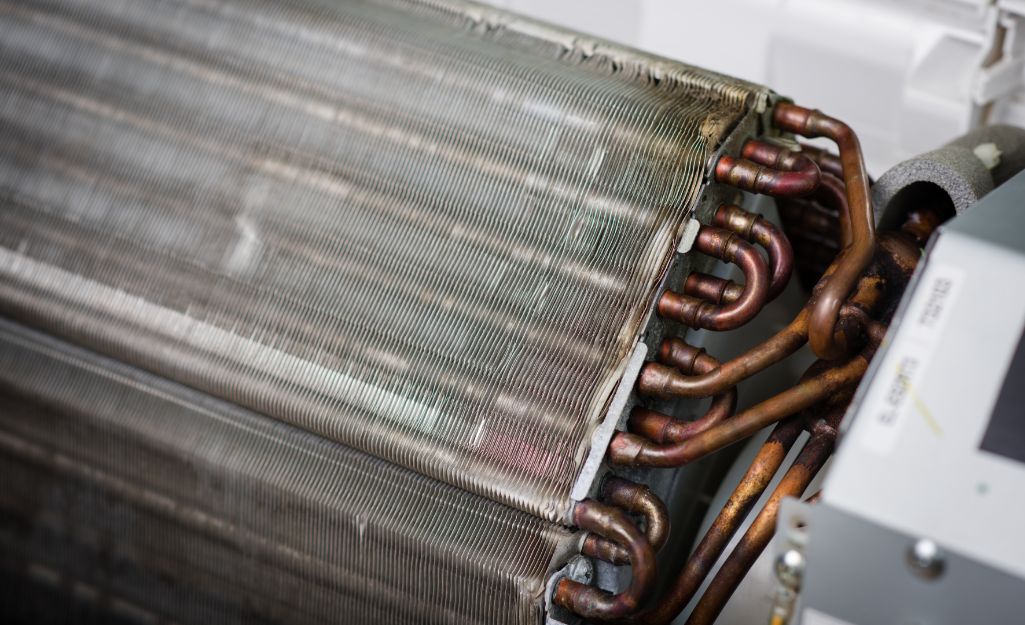
The following are common methods to repair a leak in an AC.
- If an evaporator coil has a minor leak, patch the damaged area.
- If the coil has multiple holes or significant wear, replace the entire coil.
- If the lines that carry the coolant from the condenser to the coil are damaged, replace the line set.
- If the Schrader valve is leaking, repair the valve or replace the rubber seal as needed.
- Reattach flare connections.
- Replace corroded tubing.
Pro Tip: Encourage clients to have their HVAC systems serviced at least once a year, which can reveal problems before they become leaks.
Is Freon Legal to Use?
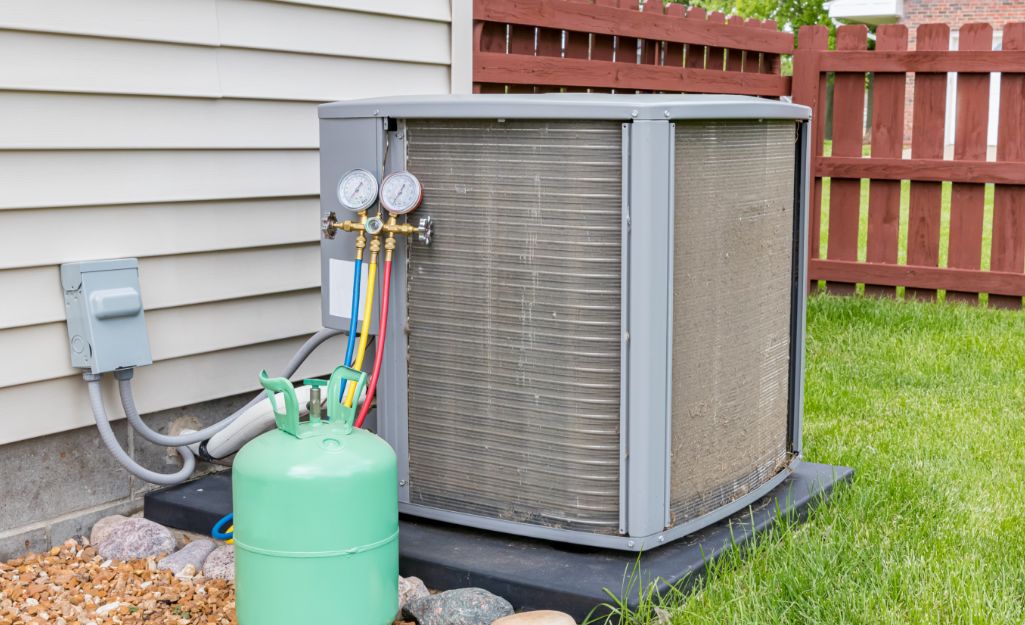
Freon is the brand name for formerly the most common refrigerant in U.S. air conditioners. Also called R-22, Freon is classified as a chlorofluorocarbon, a chemical found to have harmful effects on the atmosphere.
The United States has gradually phased Freon out of use. In 2009, the United States stopped manufacturing new air conditioners that use Freon. In 2020, the Environmental Protection Agency officially banned the refrigerant.
It is legal for older air conditioners to continue to use Freon, but it can be acquired only by EPA-licensed technicians at refrigerant suppliers. Because new Freon is no longer manufactured, every year the supply will continue to go down and the price will go up.
The newer, preferred category of refrigerant is called R-410A or Puron. Puron cannot be used in air conditioners that use Freon. Air conditioners that run on Puron tend to be quieter, less toxic and more energy-efficient than Freon air conditioners.
Pro Tip: Advise clients about the advantages of upgrading an old AC to a newer model that uses Puron. Freon does not need replenishment unless the unit has a leak. Air conditioners wear out after 15-20 years, so most Freon-using units should be due for replacement.
More Tools. More Products. More Perks.

Be more competitive and boost your bottom line with Pro Xtra, The Home Depot’s free loyalty program built for Pros. Sign up today to access the enhanced Pro Online Experience, built with the online business tools and time-saving features Pros need.
Create predefined PO or job names in your free Pro Xtra account to organize orders by properties, jobs and more. Set your account preference to require job names on every online purchase for even more transparency in your spend management.
